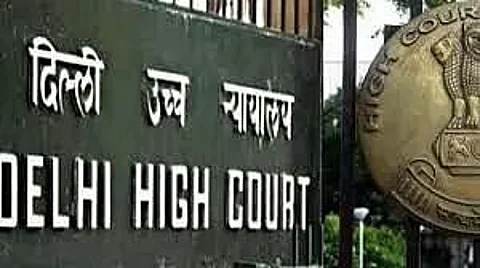
- Home
- Live Blog
- Breaking News
- Top Headlines
- Cities
- NE News
- Sentinel Media
- Sports
- Education
- Jobs

New Delhi: The Delhi High Court on Friday sought the response of the Centre on a plea challenging the constitutional validity of provisions of the Reproductive Technology (Regulation) Act, 2021, and the Surrogacy (Regulation) Act, 2021.
Issuing notice in the matter, a bench comprising Acting Chief Justice Vipin Sanghi and Justice Sachin Datta asked the government to file a reply within six weeks and posted the matter for further hearing on November 19.
The petition was filed by Karan Balraj Mehta, a single unmarried man and a lawyer by profession, and Dr Pankhuri Chandra, a married woman teaching Psychology in a private school.
As per the plea filed through advocate Aditya Samaddar, Section 2(zd) of the Surrogacy (Regulation) Act, 2021 defines "surrogacy" as a practice whereby one woman bears and gives birth to a child for an intending couple with the intention of handing over such child to the intending couple after the birth."
Section 4(ii)(b) of the Surrogacy (Regulation) Act, 2021 prohibits all forms of commercial surrogacy and allows only altruistic surrogacy, it contended.
It further stated that Commercial surrogacy is the only option available to the petitioners if they are unable to obtain consent from a woman who fulfills the severity of the eligibility of the surrogate mother.
According to the petitioner, the ban on commercial surrogacy, seemingly enacted to protect the rights of women over their bodies and denies them the opportunity to exercise their divine right of giving birth.
"The limitations imposed on who can be a surrogate mother in terms of Section 2 (zg) read with Section 4(iii)(b)(l) of the Surrogacy (Regulation) Act, 2021, limit the option available to an 'intending couple' or 'intending mother' and diminish their chances of finding a consenting surrogate mother. The best eligibility criteria to maximize the chances of finding the best surrogate mother, in the interest of both the intending couple/intending woman or the surrogate baby, would be any healthy woman above the age of majority. The needless conditions of being genetically related, of a particular age, married, and already having at least one child only constrict the universe of available candidates who may otherwise become healthy surrogate mothers", the plea read.
Also watch: